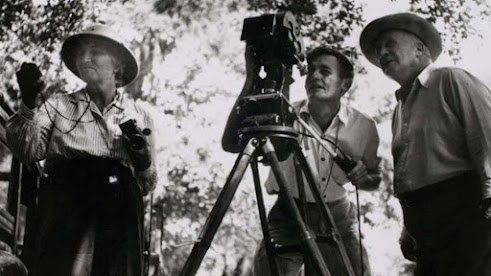RESEARCH: The father of the 'modern' documentary
This is Robert Flaherty , he is an American filmmaker and popularly called the 'farther of the modern documentary ',holds immense significance in the history of cinema for his pioneering work that shaped the genre and influenced generations of filmmakers.He
directed and produced the first commercially successful feature-length documentary film, Nanook of the North in 1922,This film, set in the icy landscapes of the Canadian Arctic, captured the daily life of an Inuit family.He was particularly intrigued by the life of the Inuit, and spent so much time filming them that he had begun to neglect his real work.
Born in 1884,in Iron Mountain, Michigan, USA. He spent much of his youth exploring the wilderness of the Canadian North, which would later influence his filmmaking. Flaherty's impact on the art of storytelling through moving images cannot be overstated.
What made Flaherty's approach unique was his commitment to authenticity. He utilized real people rather than actors, showcasing genuine Inuit customs, struggles, and survival techniques. This marked a departure from the prevailing narrative fiction films of the time.
"Nanook of the North" established Flaherty's reputation for his ability to weave compelling narratives from real-life situations. His commitment to authenticity and his innovative storytelling techniques set the foundation for the documentary genre, emphasizing the power of cinema to capture the essence of human experiences.
Following the success of "Nanook of the North," Flaherty continued to make documentaries, including "Moana" (1926) and "Man of Aran" (1934). His films explored themes of human resilience, survival, and the relationship between people and their environments.

Comments
Post a Comment